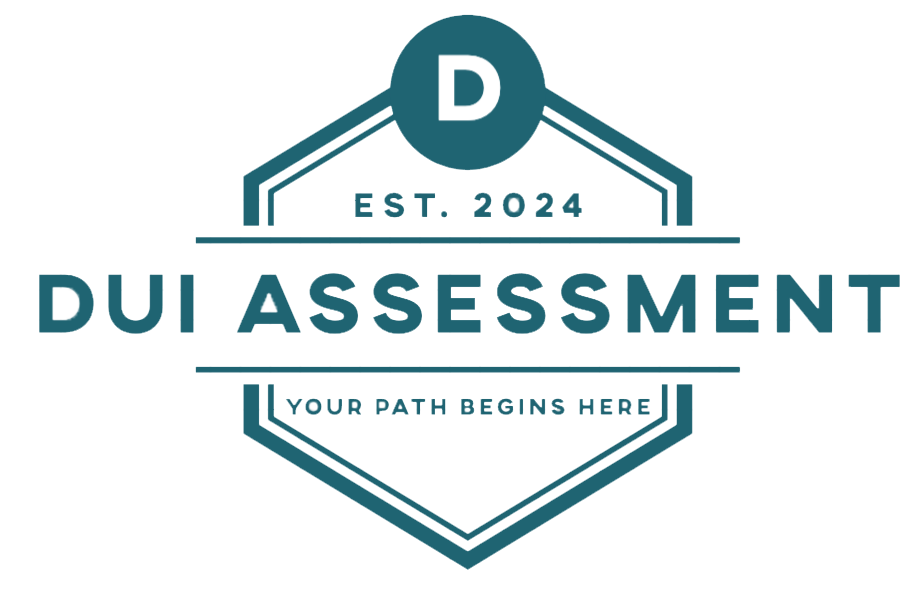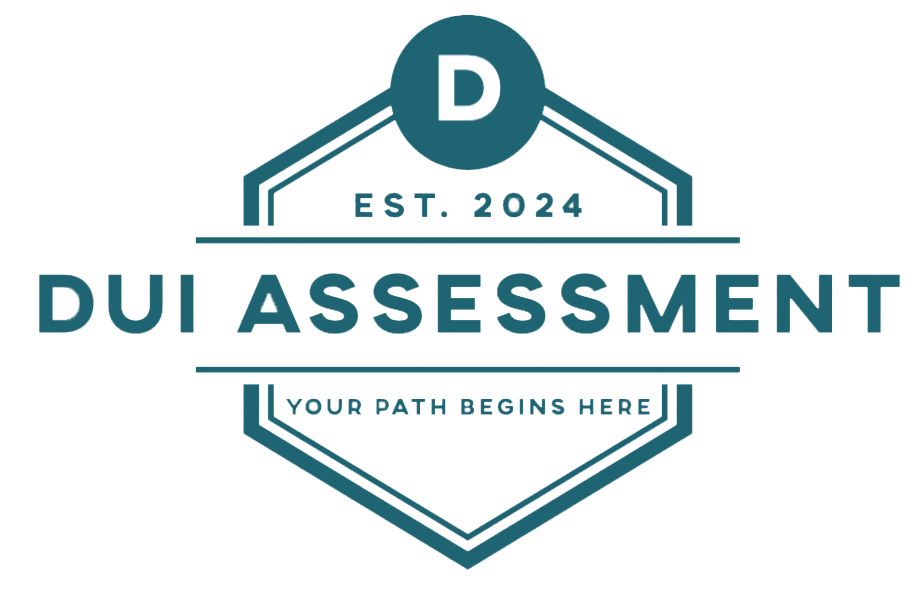When someone is charged with a DUI (driving under the influence), the consequences can be severe, both legally and personally. Whether it’s a first offense or a repeat incident, those facing DUI charges must navigate a complex legal process, including undergoing mandatory drug and alcohol assessments for DUI cases. These assessments play a crucial role in determining the level of intervention needed for an individual’s recovery and their ability to safely operate a vehicle.
At DUI Assessment, we understand the importance of these evaluations and the significant impact they can have on a person’s future. As an expert DUI assessment and evaluation center, we are here for you or your loved one who needs their life back after a DUI charge. In this blog post, we will explore what drug and alcohol assessments for DUI involve, why they are required, and how they can help individuals move forward after a DUI charge.
What is a Drug and Alcohol Assessment for DUI?
A drug and alcohol assessment for DUI is a comprehensive evaluation designed to determine an individual’s history with alcohol or drugs and assess whether they pose a danger to themselves or others on the road. This assessment typically takes place after someone has been arrested for DUI, and it helps judges, probation officers, or treatment providers decide the appropriate course of action.
The assessment process generally involves a series of questions and standardized tools that focus on the individual’s substance use patterns, history of driving under the influence, and any previous interactions with treatment programs or legal authorities. The goal is to understand whether the person has a substance use disorder or is simply a one-time offender. Based on the results, the individual may be required to complete educational programs, counseling, or other interventions.
Why Are Drug and Alcohol Assessments for DUI Important?
Drug and alcohol assessments for DUI are an essential part of the DUI process because they provide crucial insights into an individual’s habits and behaviors. By evaluating the severity of substance use, the assessment can help to determine if an individual needs treatment or simply requires education about the risks of impaired driving.
Here are some key reasons why these assessments are vital:
- Legal Compliance: In many jurisdictions, the court mandates a drug and alcohol assessment for DUI offenders to ensure compliance with local laws. This step is necessary to demonstrate that the offender is taking the charges seriously and is committed to making positive changes.
- Preventing Future Offenses: For repeat offenders, an assessment can identify the root causes of their behavior and determine if there are underlying issues, such as alcohol addiction or drug dependency. By addressing these issues early, it is possible to prevent further DUI incidents.
- Tailored Treatment Plans: Based on the results of the drug and alcohol assessment for DUI, individuals may be referred to treatment programs tailored to their specific needs. This could range from outpatient counseling to inpatient rehabilitation. A personalized treatment plan offers a higher chance of long-term success and recovery.
- Reduction of Penalties: Completing a drug and alcohol assessment for DUI and following through with any recommended programs may result in reduced penalties, such as a shorter license suspension or lighter sentencing. Judges often view those who take proactive steps toward rehabilitation more favorably.
- Protecting Public Safety: Ultimately, the purpose of these assessments is to protect the public. If someone is found to be at a high risk for future substance abuse or impaired driving, they can be directed to the appropriate programs to reduce the likelihood of future offenses and ensure they are safe to drive.
The Process of a Drug and Alcohol Assessment for DUI
The process of a drug and alcohol assessment for DUI varies slightly depending on the state or county in which the offense occurred, but it generally follows the same steps. Let’s take a closer look at what happens during this critical evaluation process:
1. Initial Interview
The assessment begins with an initial interview between the individual and a licensed evaluator. During this interview, the evaluator will ask questions about the individual’s substance use history, including:
- How often they consume alcohol or use drugs
- Whether they have had previous DUI charges or accidents
- If they have ever attended a treatment program for substance use
- Their family history of substance abuse (if relevant)
- Their general health and mental well-being
The evaluator will also ask about any prior interactions with the criminal justice system related to alcohol or drug use.
2. Standardized Testing
Following the interview, the evaluator may administer standardized assessments or questionnaires to further gauge the individual’s substance use. These tests often include:
- Alcohol Use Inventory (AUI): A self-assessment tool that helps the evaluator understand the individual’s alcohol consumption patterns and potential risks.
- Drug Abuse Screening Test (DAST): A questionnaire designed to identify drug abuse issues.
- Substance Use Disorder Screening: This tool helps determine if an individual meets the criteria for substance use disorder.
These tests help the evaluator make a more accurate determination about the person’s substance use and the severity of their condition.
3. Risk Assessment
The evaluator will assess the individual’s level of risk based on the information gathered. This includes determining whether the individual is likely to repeat the offense or if they pose a significant risk to public safety. If the evaluator deems the person to be at high risk for future offenses, more intensive treatment or intervention may be recommended.
4. Recommendation for Treatment or Education
At the end of the assessment, the evaluator will provide recommendations based on the results. These recommendations may include:
- Alcohol and Drug Education Programs: If the individual does not have a severe addiction but has a history of alcohol or drug use, they may be referred to an educational program that helps them understand the dangers of impaired driving.
- Outpatient Counseling: For individuals with moderate substance use issues, outpatient counseling may be recommended. This allows the person to attend therapy sessions while continuing with their daily life.
- Inpatient Rehabilitation: For individuals with more severe addiction issues, inpatient treatment may be necessary. These programs provide round-the-clock care in a residential setting.
- Continued Monitoring: In some cases, the evaluator may recommend ongoing monitoring through random drug or alcohol testing to ensure compliance with treatment.
The goal is to ensure the individual receives the appropriate intervention based on their needs and to help them get their life back on track.
How Drug and Alcohol Assessments for DUI Help
A drug and alcohol assessment for DUI is more than just a requirement in the legal process—it can also be the first step in a person’s recovery journey. Here’s how these assessments can help individuals and their loved ones:
1. Guiding Recovery
For many people facing DUI charges, substance abuse may be a symptom of a larger issue. The assessment can identify underlying addiction or mental health concerns that need to be addressed. By providing a clear picture of the person’s needs, the assessment helps guide them to the right treatment, whether it’s detoxification, therapy, or ongoing counseling.
2. Reducing Stigma
Undergoing a drug and alcohol assessment for DUI can help reduce the stigma around substance use. It allows the individual to acknowledge their behavior and take responsibility for their actions. In turn, this process can lead to healthier, more honest conversations about recovery.
3. Preventing Relapse
Having a clear treatment plan in place increases the likelihood of long-term recovery. By following through with the recommendations from the drug and alcohol assessment for DUI, individuals are more likely to avoid relapsing into old habits and behaviors, making it less likely they will re-offend.
4. Supporting Families
A DUI charge not only affects the individual but also their family and loved ones. Family members often bear the emotional and financial burden of the individual’s behavior. Through an assessment, families can better understand the problem and find ways to support their loved ones through treatment and recovery.
How DUI Assessment Can Help You or Your Loved One
If you or a loved one is facing DUI charges, it’s important to know that help is available. At DUI Assessment, we are experts in guiding individuals through the drug and alcohol assessments for DUI process. Our goal is to ensure that you or your loved one receives the necessary help to move forward and make positive life changes.
We understand that life can feel overwhelming after a DUI charge, but with the right assessment and treatment plan, there is hope for recovery. Our compassionate and experienced team is here to help you every step of the way, providing the support needed to regain control of your life and avoid future legal issues.
- Locations we Serve: We provide DUI assessment and evaluation services throughout the Northwest and nearby regions, offering thorough support for individuals dealing with DUI charges. Our dedication to accessible and professional assistance ensures that anyone in need can access the guidance and resources necessary to navigate this difficult time.
- Our Team: Our team consists of licensed professionals who have expertise in conducting drug and alcohol assessments for DUI cases. They are committed to providing a non-judgmental, safe space for individuals to open up and receive the help they need.
- Insurance Coverage: We understand that navigating insurance coverage can be overwhelming, especially during a difficult time. That’s why we work with insurance companies to ensure our services are accessible and affordable for all individuals seeking assistance.
- Assessment Process: Our DUI assessment process is designed with your best interests in mind. We take the time to thoroughly evaluate each individual’s circumstances, providing a customized treatment plan that takes into account their unique needs. Our goal is to provide the most accurate and helpful assessment possible, leading to positive outcomes for all parties involved.
- Expert Guidance: With our team of experienced evaluators and counselors, we provide expert guidance throughout the entire process, from initial evaluation through treatment and recovery. We are here to support you or your loved one every step of the way.
If you or a loved one is facing DUI charges, know that there is hope for a brighter future. Contact us at DUI Assessment today to get started on your path towards recovery. We are here to support you every step of the way.
Getting Help With Us at DUI Assessment
Drug and alcohol assessments for DUI are a critical component of the DUI process, designed to assess a person’s substance use and determine the necessary steps for rehabilitation. Whether it’s an educational program or intensive treatment, these assessments help ensure that individuals receive the care and support they need to prevent future offenses and lead healthier lives.
At DUI Assessment, we are committed to supporting those who are ready to take responsibility for their actions and move forward. If you or a loved one is facing DUI charges, contact us today to learn how we can help with the drug and alcohol assessment for DUI and guide you through the process of recovery. You don’t have to face this challenge alone—let us help you or your loved one get their life back. Give us a call at 888-896-7893 or visit our website at www.duiassessment.com to learn more!



